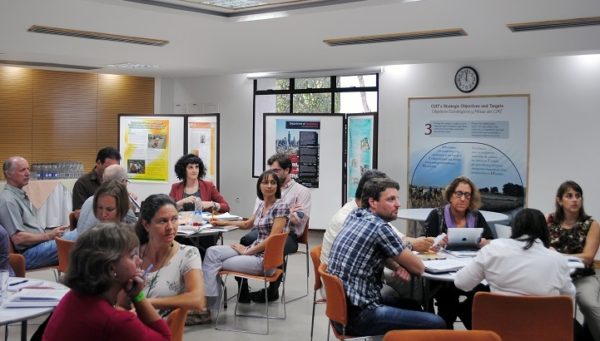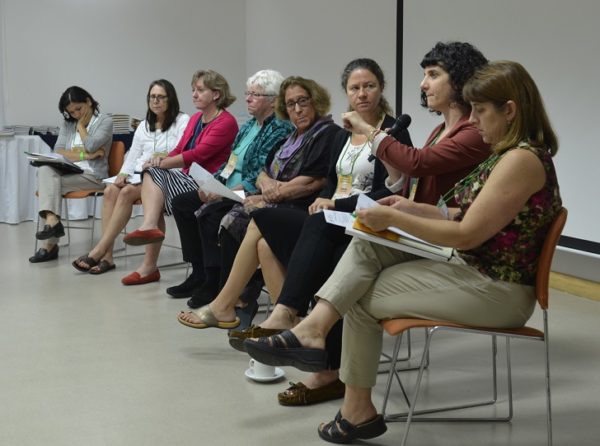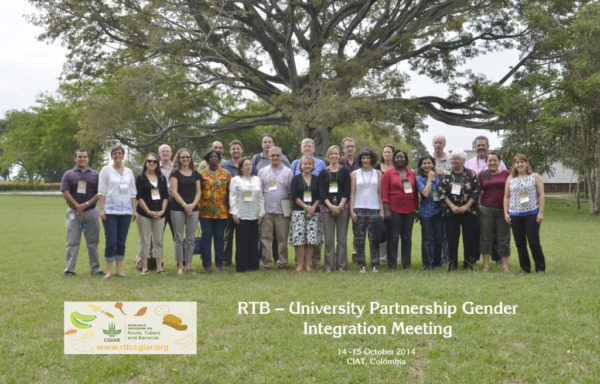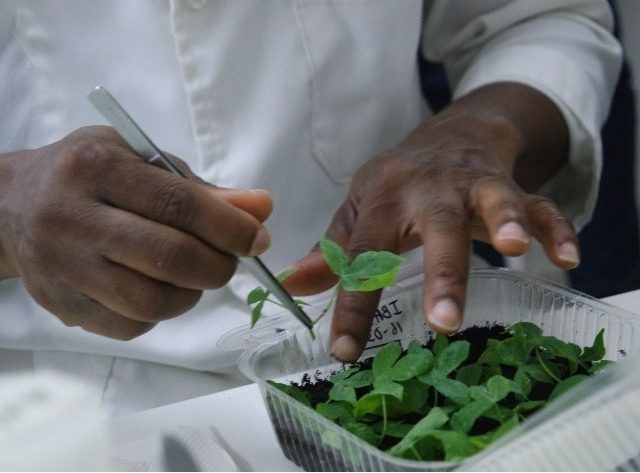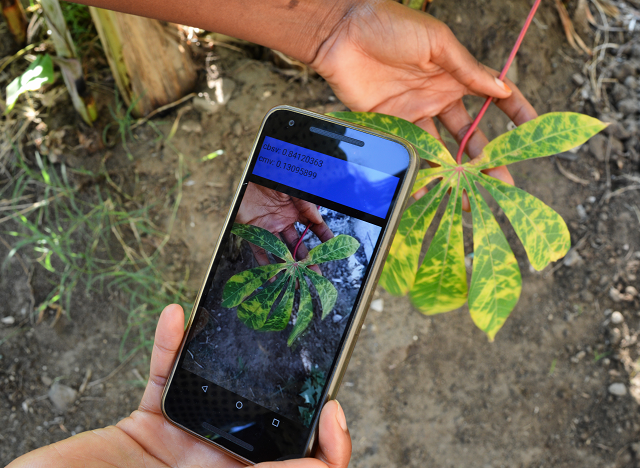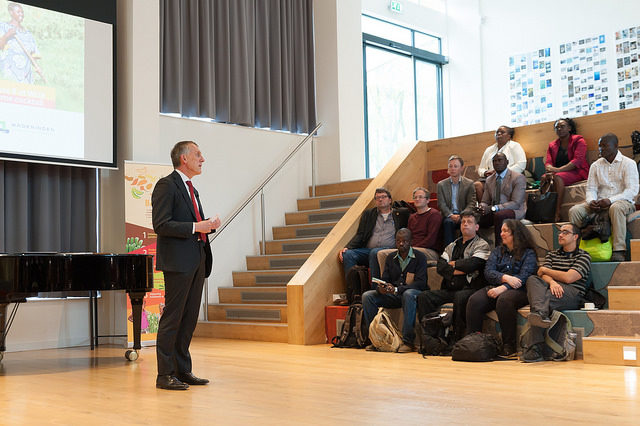Lisa Anderberg from Clark University will be the first graduate student to conduct gender analysis directly with a biological scientist working in the RTB Research Program as part of a new partnership between RTB and various US universities. Anderberg will join an RTB project in Laos led by CIAT researcher Kris Wyckhuys, while working under the guidance of Professor Cynthia Caron also at Clark University. The initiative, born in late 2014, aims to strengthen the gender responsiveness of research in RTB crops while providing field opportunities for graduate students and collaboration with faculty.
“I am glad to see these partnerships develop and to welcome our first students on board,” says Kayte Meola, RTB gender focal point at CIAT and AWARE Visiting Fellow at Cornell University, who is leading the initiative. “There is so much to gain on both sides. Through working with universities, RTB will increase its capacity to conduct gender research while graduate students will have the opportunity to gain field experience in collaboration with professional researchers throughout Asia, Africa and Latin America. Currently, we are working with six US universities and the University of Cordoba in Colombia but the door is wide open for universities from other countries to join us.”
Meola has already worked with two graduate students to develop a tool to measure intra-household income allocation, which could be useful for any RTB project that aims to increase household income in an equitable fashion. The idea was inspired by a CIAT project on using cassava residue to make pig feed in Vietnam, in which household income is a desired outcome. University of San Francisco student Philip Jakob has been working with Meola on the tool since September and is currently preparing to test it in Colombia in January. That pilot will be supported by Profesora Teonila Aguilar Jiménez and a team of students at the University of Cordoba, Colombia, who will assist in the field work. Djeinam Toure, a PhD candidate at Cornell University, will also join Jakob on that pilot in Colombia, and after refining the tool further; she will re-pilot it in Nigeria in the spring, in collaboration with Holger Kirscht, RTB focal point at IITA, and Hale Tufan, project manager of the Next Generation Cassava Project (NEXTGEN) at Cornell University.
Tufan and Meola organized a meeting of gender specialists at CIAT headquarters in Cali, Colombia on October 14-15 that brought together gender experts and biophysical scientists from the RTB centers, the University of San Francisco, Pennsylvania State University, Cornell University, Clark University, University of Illinois at Chicago, and the University of Florida.
The participants examined the prospects for providing research and professional experiences for graduate students in RTB’s many projects across Asia, Africa and Latin America. They also discussed ways that universities can strengthen RTB’s gender work, and how university faculty might interact with RTB in a strategic way.
Many universities showed interest in placing graduate students with RTB scientists. “I very much support the idea of cross-fertilization of areas of expertise – both substantive and methodological – between social scientists and biological scientists”, explained Elizabeth Katz, a development economist from the University of San Francisco. “In the particular case of finding ways to meaningfully incorporate gender analysis into the basic research, dissemination, and monitoring and evaluation work of RTB, I think that there are many fruitful areas of collaboration that will be mutually beneficial to both partners”. While Katz’ interests focus on gender and agricultural development, land tenure, and migration, she is also interested in both quantitative and qualitative research methods that incorporate gender differences into rigorous impact evaluation. “At San Francisco University, we hope to place several graduate students who are working towards Masters of Science degrees in International and Development Economics as research assistants to ongoing RTB projects.” Possibilities include market analysis and gendered access for industrial cassava in the north coast of Colombia and biofortified cassava in Haiti; the gendered economic effects of introducing mechanization into post-harvest processing of cassava in Africa, and a socio-economic baseline study in five communities in Uganda and Tanzania where new banana varieties will potentially be introduced.
Kayte Meola is glad to see that various RTB biological scientists have submitted project descriptions as the first step toward linking with university scholars. An online platform will soon be available to foster matches between graduate students and RTB project leaders. “In the future, we hope to include graduate students and faculty in our project countries and potentially foster North-South connections between universities”, she adds.
As of 2016, the partnership has grown to include:
- Cornell University
- University of Guelph
- Pennsylvania State University
- University of Illinois-Chicago
- Clark University
- University of Florida
- University of Minnesota
In 2016, RTB partner centers received six MSc and PhD students from these universities, including a student from the University of Guelph, Ontario, who conducted research in Quito, Ecuador on implementing ‘Gender Sensitive Farmer Business Schools’ and adapting a ‘Farmer Business School Methodology’ to the Ecuadorian Andes.
The Partnership is open to additional universities. Contact Bhawana Upadhyay at b.upadhyay@cgiar.org for more information.
This initiative is supported by the United States Agency for International Development (USAID), In 2014, USAID provided RTB with funds under its “Feed the Future Program” for supporting collaborative research between scientists in the U.S. and CGIAR research programs, concentrating on senior researchers and university faculty and their students. After an internal call for proposals, RTB selected the Gender Integration RTB-University Partnership for a US$50,000 grant.
By Véronique Durroux-Malpartida
Article updated: July 2016

